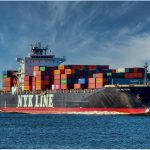Introduction 🌍💡
Marine engineering is a specialized field that focuses on the design, construction, operation, and maintenance of ships, submarines, and offshore structures. Given the complex and safety-critical nature of marine environments, certifications and licenses are essential for ensuring that marine engineers possess the required knowledge, skills, and competencies. These credentials validate an engineer’s expertise, promote safety, and ensure compliance with international regulations. This article explores the significance of certifications and licenses in marine engineering, their types, and their benefits for both individuals and the maritime industry.
Why Certifications and Licenses Matter ✅📜
Certifications and licenses play a crucial role in the marine engineering field for several reasons:
-
Ensuring Safety and Reliability ⚠️🚨
Marine engineers are responsible for maintaining the mechanical systems that keep vessels operational and safe. Certifications verify that engineers are trained to handle critical situations, reducing the risk of equipment failure and accidents. -
Compliance with International Regulations 🌎📋
The maritime industry is governed by international regulations such as the International Maritime Organization (IMO) standards and the International Convention on Standards of Training, Certification, and Watchkeeping for Seafarers (STCW). Engineers must hold valid certifications to comply with these regulations and legally operate on vessels. -
Enhancing Career Opportunities 📈💼
Certifications and licenses enhance an engineer’s credibility, increasing job opportunities and career advancement prospects. Many employers prioritize candidates with recognized credentials. -
Maintaining Environmental Sustainability 🌱💧
Marine engineers play a key role in minimizing the environmental impact of ships. Certifications ensure that engineers are trained in eco-friendly technologies and practices, aligning with global sustainability goals. -
Building Professional Credibility 🏅🙌
Certifications serve as proof of an engineer’s expertise and commitment to their profession, boosting their reputation within the industry.
Types of Certifications and Licenses in Marine Engineering 📜⚙️
1. International Certifications 🌍
-
STCW Certification (Standards of Training, Certification, and Watchkeeping for Seafarers) 🌊⚓
The STCW certification, established by the IMO, is mandatory for marine engineers working on commercial vessels. It covers safety training, firefighting, emergency procedures, and pollution prevention. -
IMO Certifications 🛳️📋
Various certifications issued by the IMO ensure that engineers meet global safety and environmental standards. These include certifications for handling hazardous materials and maintaining ship engines.
2. National Licenses and Certifications 🇺🇸🇬🇧🇦🇺
Each country has its own licensing bodies that regulate marine engineering practices:
- United States: U.S. Coast Guard (USCG) licenses, such as the Merchant Mariner Credential (MMC) for engineers.
- United Kingdom: Maritime and Coastguard Agency (MCA) licenses, including Certificates of Competency (CoC) for different engineering levels.
- Australia: Australian Maritime Safety Authority (AMSA) certifications for marine engineers and engine room operators.
3. Professional Certifications 🏅
- Certified Marine Engineer (CME) by professional organizations like the Society of Naval Architects and Marine Engineers (SNAME).
- Project Management Professional (PMP) for marine engineers involved in large-scale maritime projects.
- Certified Energy Manager (CEM) for engineers focusing on energy efficiency in marine systems.
4. Specialized Certifications ⚡💧
- Advanced Firefighting Certification: Training in advanced firefighting techniques and emergency response.
- Marine Pollution Prevention Certification (MARPOL): Ensures compliance with the MARPOL Convention for preventing marine pollution.
- High-Voltage System Certification: Required for engineers working with high-voltage electrical systems on ships.
How to Obtain Certifications and Licenses 📝💼
- Educational Qualifications: Most certifications require a degree in marine engineering or a related field.
- Training Courses: Candidates must complete approved training courses covering theoretical knowledge and practical skills.
- Examinations: Licensing bodies conduct exams to assess an engineer’s competence and understanding of maritime regulations.
- Sea Service Experience: Practical experience working onboard vessels is often required to qualify for advanced certifications.
- Renewal and Continuing Education: Certifications and licenses must be periodically renewed, with engineers required to update their knowledge through continuing education.
Benefits of Certifications and Licenses 💼✅
- Career Advancement: Certifications open doors to higher-level positions, such as Chief Engineer and Marine Superintendent.
- Global Mobility: International certifications like STCW enable engineers to work on vessels worldwide.
- Higher Earnings: Licensed marine engineers typically earn higher salaries due to their specialized skills and qualifications.
- Increased Job Security: Certified engineers are in high demand, ensuring greater job stability.
- Professional Recognition: Holding recognized certifications enhances an engineer’s reputation and credibility within the industry.
Challenges in Obtaining Certifications and Licenses 🧩💪
- Time and Cost: Obtaining certifications requires significant time and financial investment.
- Rigorous Training: The training and exams are challenging, ensuring that only qualified individuals receive certifications.
- Continuous Learning: Engineers must stay updated with evolving maritime technologies and regulations.
The Future of Marine Engineering Certifications 🚀🌱
As the maritime industry evolves, certifications will increasingly focus on:
- Green Technologies: Training engineers to operate eco-friendly ships using alternative fuels like LNG and hydrogen.
- Digital Skills: Certifications in advanced technologies such as automation, cybersecurity, and digital navigation systems.
- Remote Monitoring: Skills for using IoT and AI to monitor and maintain ship systems remotely.
Conclusion ⚓📜
Certifications and licenses are essential in marine engineering, ensuring that professionals have the skills, knowledge, and ethical standards needed to operate safely and efficiently. They validate an engineer’s expertise, enhance career prospects, and ensure compliance with international regulations. As the maritime industry continues to innovate, certifications will play a key role in preparing engineers to meet future challenges and drive sustainable progress. Whether aspiring to work on commercial ships, offshore platforms, or cutting-edge green vessels, obtaining the right certifications is crucial for success in this dynamic and rewarding field.


